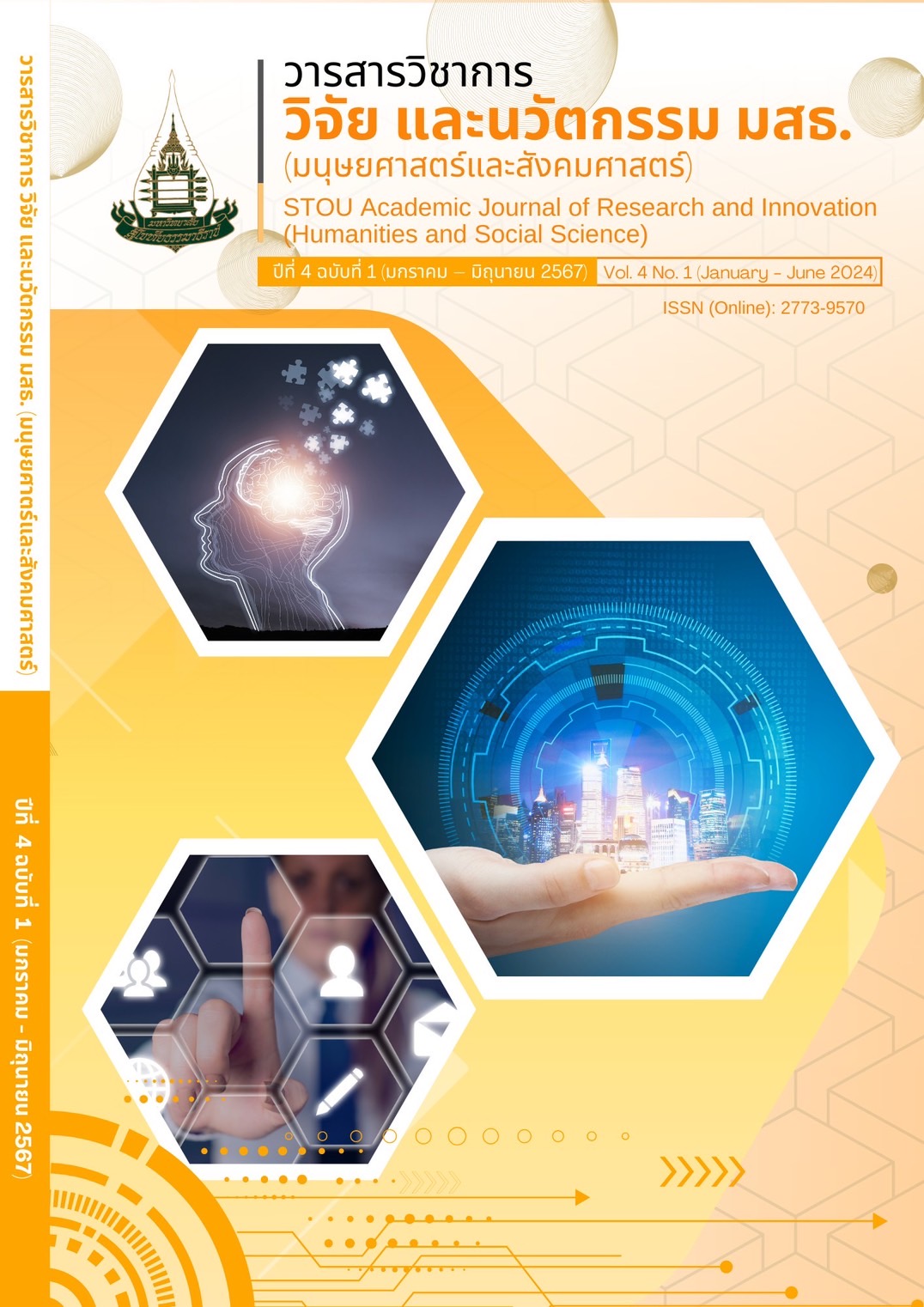The Influence of New Media in Local Elections
Keywords:
The influence of new media, new media, local electionsAbstract
The objective of this academic article is to highlight the importance of new media in local elections, given the changes in political structures, technological advancements, and the enfranchisement of voters. Candidates and political parties need to employ strategies to garner electoral support, focusing on the use of social media in both political and non-political contexts, in order to create an image for themselves and their parties. This demonstrates the perspective of new political options and the use of new media that can effectively engage eligible voters, allowing them to stay connected to political news and information online. Currently, in the arena of local elections, politicians and political parties compete to create viral trends in the online world by utilizing compelling content such as photographs, videos, and contemporary typographic styles. They communicate through platforms that provide widespread access to eligible voters, covering various geographical areas. The use of appropriate media that suits the context of each local election stage generates momentum, eventually leading to public opinion or news and becoming a medium for two-way communication between politicians, political parties, and eligible voters. This has an influence on eligible voters' perceptions, generating interest, evaluating options, and leading to the decision-making process in politics, which ultimately involves choosing candidates and political parties.
References
กมลรัฐ อินทรทัศน์. (2550). เทคโนโลยีสารสนเทศและทฤษฎีการสื่อสาร. กรุงเทพฯ: ซีเอ็ดยูเคชั่น.
กาญจนา แก้วเทพ. (2543). สื่อสารมวลชน ทฤษฎีและแนวทางการศึกษา. กรุงเทพฯ: เอดิสัน เพรส โพรดักส์.
คริษฐ์ ลิ้มตระกูล. (2557). นวัตกรรมอินเทอร์เน็ตมีมในการสื่อสารทางการเมืองไทย: ศึกษากรณีการคัดค้านร่างพระราชบัญญัตินิรโทษกรรมในปี พ.ศ. 2556. (วิทยานิพนธ์ปริญญามหาบัณฑิต). สถาบันบัณฑิตพัฒนบริหารศาสตร์, กรุงเทพฯ.
ญาณิกา เทียนทอง. (2554). การเปิดรับสื่อทางการเมืองและการมีส่วนร่วมทางการเมืองของประชาชนที่มีสิทธิเลือกตั้งในกรุงเทพฯ. (วิทยานิพนธ์ปริญญามหาบัณฑิต). มหาวิทยาลัยเกษตรศาสตร์, กรุงเทพฯ.
ณัฐวีร์ ไวทยาการ และอภิวัฒน์ สุระแสง. (2560). แอนิเมชั่นเรื่อง ด้านมืดสื่อสังคมออนไลน์. (วิทยานิพนธ์ปริญญามหาบัณฑิต). คณะเทคโนโลยีสารสนเทศ มหาวิทยาลัยสยาม, กรุงเทพฯ.
ปรมะ สติเวทิน. (2533). หลักนิเทศศาสตร์. กรุงเทพฯ: จุฬาลงกรณ์มหาวิทยาลัย.
พรจิต สมบัติพานิช. (2547). โฆษณาในทศวรรษที่ 2000-2010: การศึกษาถึงปัจจัยด้านสื่อที่มีต่อรูปแบบ โฆษณา. (ดุษฎีนิพนธ์ปริญญาปรัชญาดุษฎีบัณฑิต). คณะวารสารศาสตร์และสื่อสารมวลชน, มหาวิทยาลัยธรรมศาสตร์, กรุงเทพฯ.
พันธ์ศักดิ์ อาภาขจร (2562). โซเชียลมีเดียหลังเลือกตั้ง ตั้งสติก่อนเสพสื่อ. สืบค้นเมื่อ 25 ธันวาคม 2566 จาก https://www.isranews.org/isranews-article/75135-social75135.html.
ภัทริกา จุฑางกูร. (2565). อิทธิพลของสื่อที่มีต่อการมีส่วนร่วมทางการเมืองของประชาชนในเทศบาลเมืองเมืองปัก ตำบลเมืองปัก อำเภอปักธงชัย จังหวัดนครราชสีมา. Journal of Politic and Governance, 12(1), 243-261.
ภานุวัฒน์ ขันจา. (2556). เทคโนโลยีทางการสื่อสาร. สืบค้นเมื่อ 20 ธันวาคม 2566 จาก http://industrial.uru.ac.th/phanuwat/file/ communication/01-introduction.ppt.
วิทยา ดำรงเกียรติศักดิ์. (2537). แนวคิดและวิธีการสื่อสารทางการเกษตร. เชียงใหม่: สถาบันเทคโนโลยี การเกษตรแม่โจ้.
สมพร คำหลวง. (2548). อิทธิพลของสื่อที่มีผลต่อการตัดสินใจเลือกสมาชิกสภาผู้แทนราษฎรของผู้มีสิทธิเลือกตั้งในเขตอำเภอเมือง จังหวัดเชียงใหม่. (วิทยานิพนธ์ปริญญาศิลปศาสตรมหาบัณฑิต). มหาวิทยาลัยแม่โจ้, เชียงใหม่.
สำนักประชาสัมพันธ์ สำนักงานเลขาธิการวุฒิสภา. (2561). กลยุทธ์การประชาสัมพันธ์ผ่านสื่อสังคมออนไลน์ ด้วยการใช้เฟซบุ๊ก (Facebook). กรุงเทพฯ: สำนักประชาสัมพันธ์ สำนักงานเลขาธิการวุฒิสภา.
Habermas, J. (1974). The Public Sphere: an Encyclopedia Article. New German Critique, 3(19), 49-50.
Klapper, J. T. (1960). The Effect of Mass Communication. New York: The Free Press.
Safranek, R. (2012). The Emerging Role of Social Media in Political and Regime Change. Retrieve from https://www.academia.edu/11859835/ArticleReview
Shirky, C. (2011). The Political Power of Social Media: Technology, the Public Sphere, and Political Change. Foreign Affairs. Retrieve from https://www.cc.gatech.edu/
Schulz, Winfried. (1997). Changes of Mass Media and the Public Sphere. The Public, 4(2), 57-69.
Storck, Madeline. (2011). The Role of Social Media in Political Mobilization: A Case Study of the January 2011 Egyptian Uprising. (Master’s Thesis in Arts). The University of St. Andrews, Scotland.
Downloads
Published
How to Cite
Issue
Section
License
Copyright (c) 2024 วารสารวิชาการ วิจัย และนวัตกรรม มสธ. (มนุษยศาสตร์และสังคมศาสตร์) (ออนไลน์)

This work is licensed under a Creative Commons Attribution-NonCommercial-NoDerivatives 4.0 International License.





